Sammelbände
The Routledge Handbook of Religion, Medicine, and Health
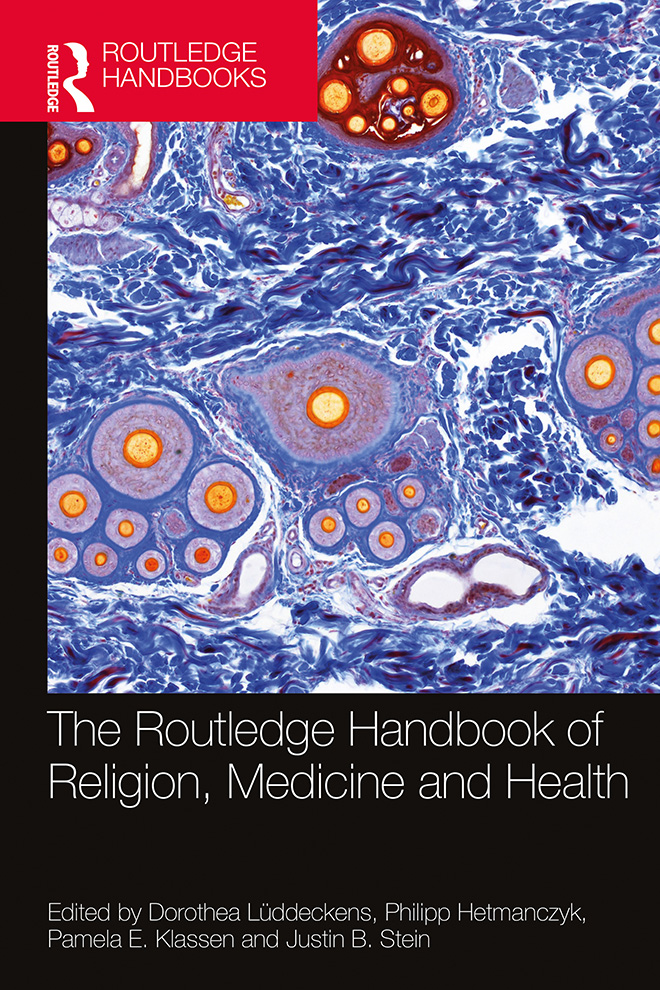
Dorothea Lüddeckens, Philipp Hetmanczyk, Pamela E. Klassen, Justin B. Stein (Hg.)
London: Routledge 2021
The relationships between religion, spirituality, health, biomedical institutions, complementary, and alternative healing systems are widely discussed today. While many of these debates revolve around the biomedical legitimacy of religious modes of healing, the market for them continues to grow. The Routledge Handbook of Religion, Medicine, and Health is an outstanding reference source to the key topics, problems, and debates in this exciting subject and is the first collection of its kind. Comprising over thirty-five chapters by a team of international contributors, the Handbook is divided into five parts:
- Healing practices with religious roots and frames
- Religious actors in and around the medical field
- Organizing infrastructures of religion and medicine: pluralism and competition
- Boundary-making between religion and medicine
- Religion and epidemics
Within these sections, central issues, debates and problems are examined, including health and healing, religiosity, spirituality, biomedicine, medicalization, complementary medicine, medical therapy, efficacy, agency, and the nexus of body, mind, and spirit.
Medicine – Religion – Spirituality. Global Perspectives on Traditional, Complementary, and Alternative Healing
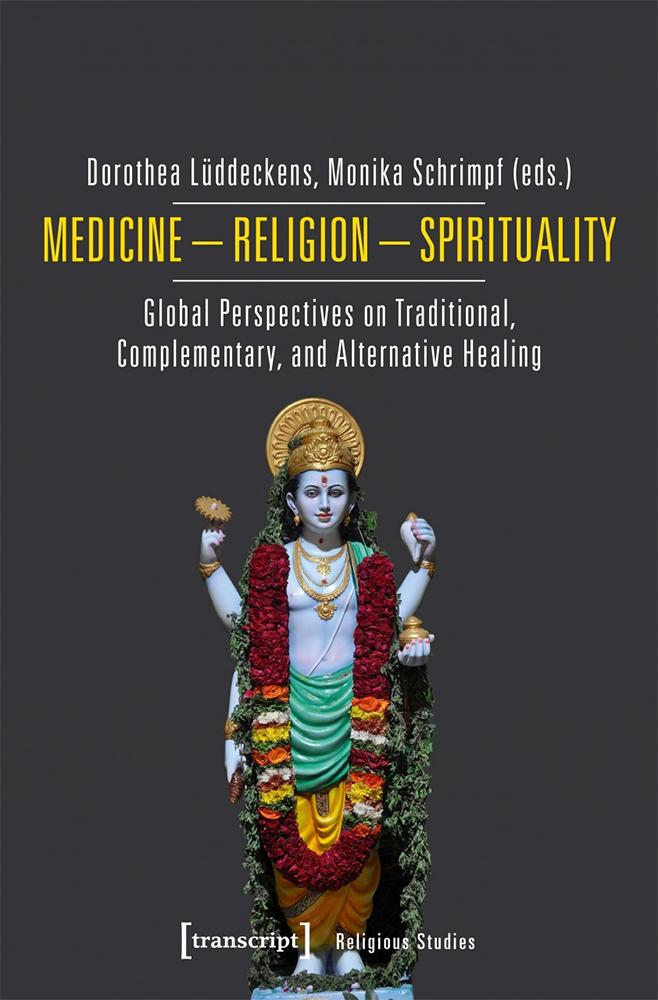
Dorothea Lüddeckens, Monika Schrimpf (Hg.)
Bielefeld: transcript Verlag 2018
In modern societies the functional differentiation of medicine and religion is the predominant paradigm. Contemporary therapeutic practices and concepts in healing systems, such as Transpersonal Psychology, Ayurveda, as well as Buddhist and Anthroposophic medicine, however, are shaped by medical as well as religious or spiritual elements. This book investigates configurations of the entanglement between medicine, religion, and spirituality in Europe, Asia, North America, and Africa. How do political and legal conditions affect these healing systems? How do they relate to religious and scientific discourses? How do therapeutic practitioners position themselves between medicine and religion, and what is their appeal for patients?
Entre dieux et hommes : anges, démons et autres figures intermédiaires. Actes du colloque organisé par le Collège de France, Paris, les 19 et 20 mai 2014
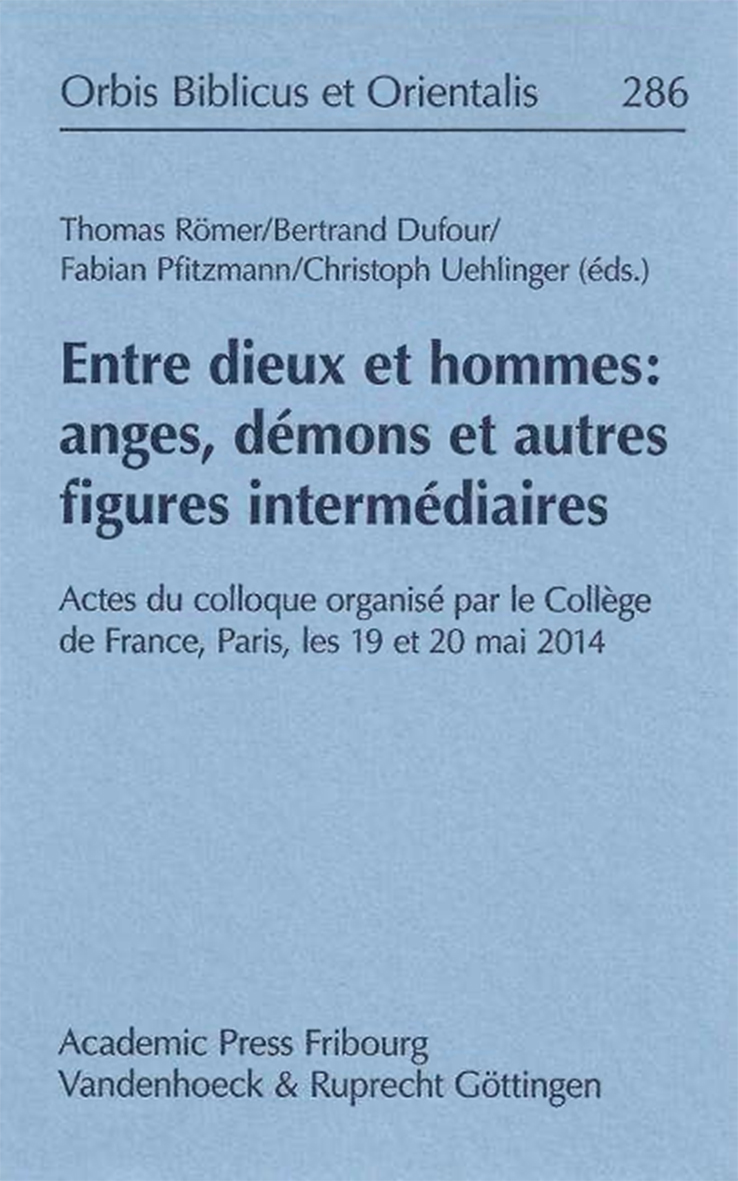
Thomas Römer, Bertrand Dufour, Fabian Pfitzmann, Christoph Uehlinger (Hg.)
Fribourg: Academic Press / Göttingen: Vandenhoeck & Ruprecht 2017
Laws of Heaven – Laws of Nature. Legal Interpretations of Cosmic Phenomena in the Ancient World
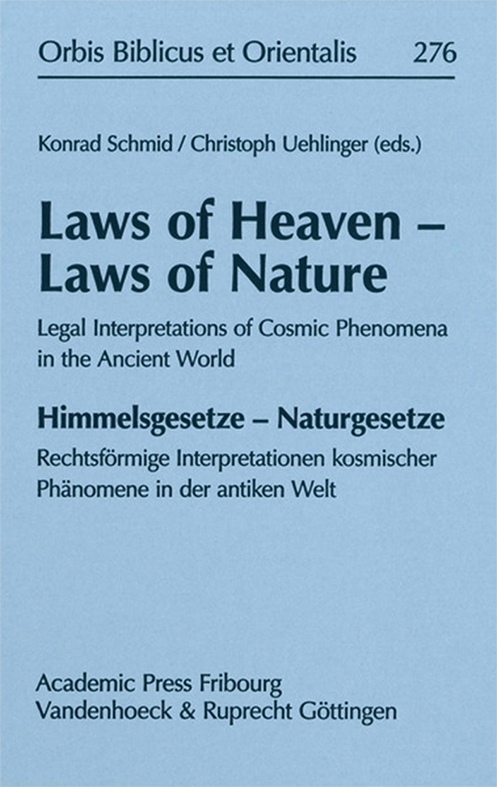
Konrad Schmid, Christoph Uehlinger (Hg.)
Fribourg: Academic Press / Göttingen: Vandenhoeck & Ruprecht 2016
In Western academic contexts, the idea of "laws of nature" is often regarded as having originated among the pre-Socratics, Plato, and the Stoics. But this view is historically incorrect. Legal interpretations of cosmic phenomena go back to the ancient Near East, where such understandings also emerged in the Hebrew Bible. The present volume analyzes texts relevant to this topic, developing a fresh approach to portrayals of "laws of nature" from antiquity.
Die Sichtbarkeit religiöser Identität : Repräsentation – Differenz – Konflikt
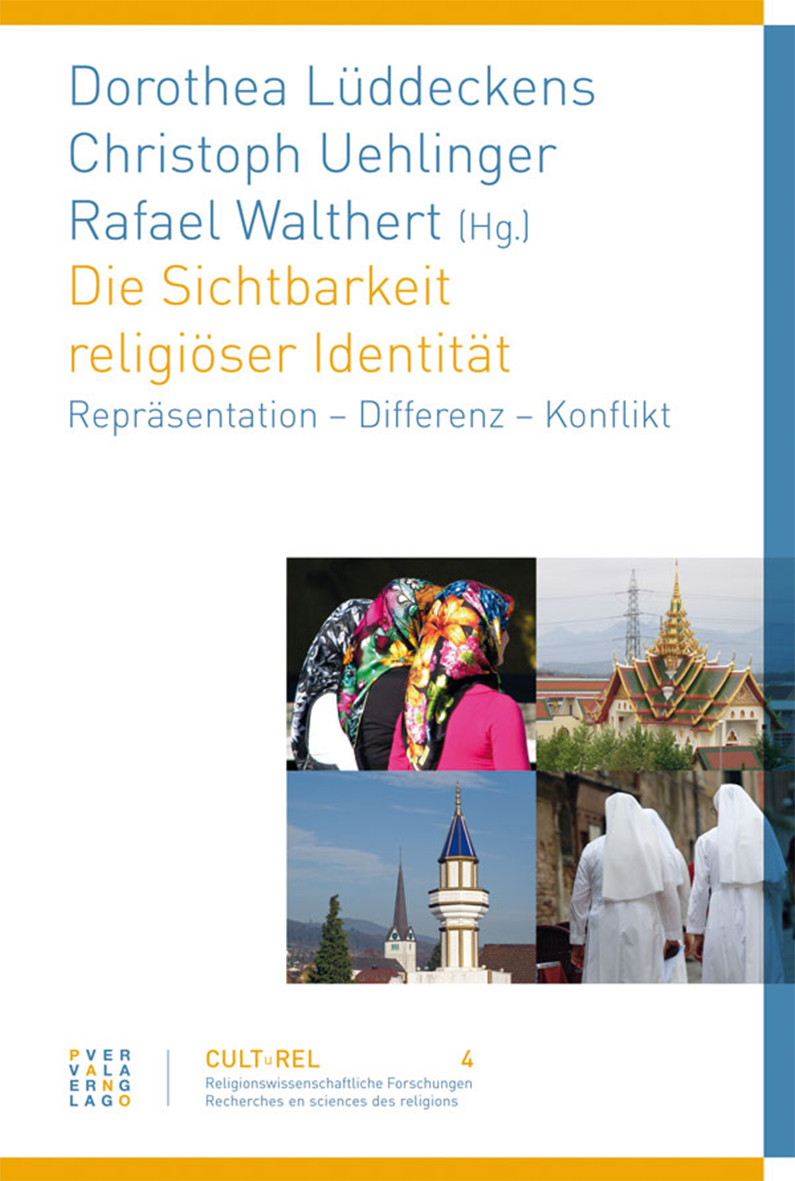
Dorothea Lüddeckens, Christoph Uehlinger, Rafael Walthert (Hg.)
Zürich: Pano-Verlag 2013
Im Zentrum dieses Sammelbandes steht die Frage nach der Visibilität religiöser Zugehörigkeit. Wie und warum können Kennzeichen religiöser Identität, die im öffentlichen Raum sichtbar gemacht werden, in der pluralistischen Gesellschaft zur Konstruktion kultureller Differenz und Fremdheit beitragen und Gegenstand öffentlich ausgetragener Konflikte werden?
Die Beiträge untersuchen individuelle und kollektive Auseinandersetzungen über religionsbezogene Kleidungspraktiken und Bauvorhaben im Horizont kultur- und sozialwissenschaftlicher Theorien. Die Debatten im Rahmen der schweizerischen (Anti-)Minarett-Initiative werden erstmals in einem
religionswissenschaftlichen Zusammenhang analysiert.
Fluide Religion. Neue religiöse Bewegungen im Wandel. Theoretische und empirische Systematisierungen
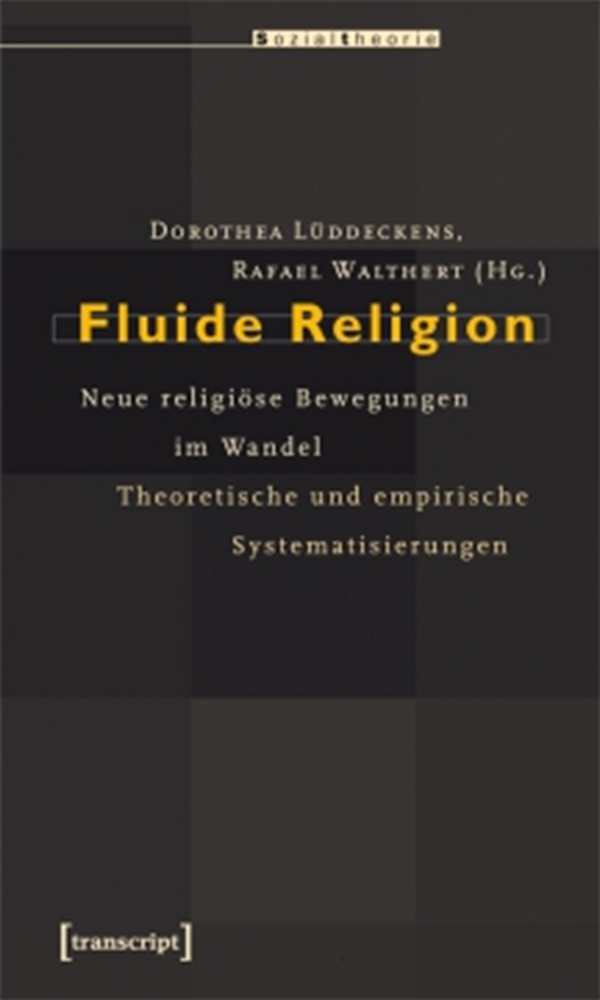
Dorothea Lüddeckens, Rafael Walthert (Hg.)
Bielefeld: transcript Verlag 2010
Neue religiöse Bewegungen sind zugleich Innovatoren und Indikatoren des religiösen Wandels moderner Gesellschaften. Unter den Vorzeichen von Individualisierung und Pluralisierung ist gegenwärtig ein Bedeutungsverlust totaler Gemeinschaften (»Sekten«) zugunsten unverbindlicher Formen religiöser Zugehörigkeit (»Spiritualität«) zu beobachten. Dies führt zur Zunahme religiöser Alternativen und fördert ihre wachsende Diffusion und Relevanz für das religiöse Feld.
Erstmals liegt mit diesem Band eine theoretische Systematisierung dieses Prozesses vor, die durch Fallstudien zu verschiedenen religiösen Gemeinschaften wie Hare Krishna, New Age und evangelikalen Jugendkirchen ergänzt wird.